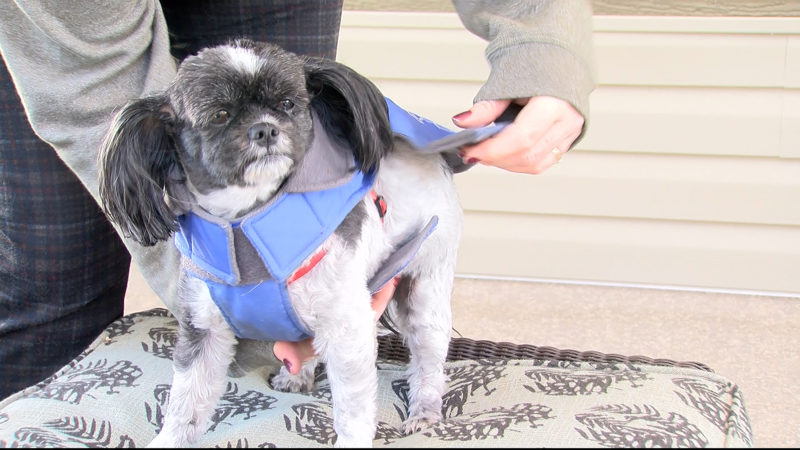COVID-19 has changed the way animal shelters are operating to protect public safety.
This has forced shelters to change how animal adoptions take place.
Lethbridge Animal Services was forced to briefly shut down its operations when the pandemic first started, leaving staff uncertain about what would happen to the animals.
The shelter was able to continue with pet adoptions by introducing scheduled adoption appointments, instead of letting the public come in at any time. Skylar Plourde, Lethbridge Animal Services Animal control officer, says the changes they made turned out to be more beneficial for the animals, reducing the amount of people coming into the shelter and reducing the animal’s stress.
“We’ve found the animals seem to be a little less stressed because we don’t have strangers poking their fingers through the kennels and staring at them through the windows all day. The animals have a bit more of a routine and it’s a bit more of a stable routine.”
Plourde says the shelter is happy with the changes and currently has no plans to go back to the old system once the pandemic is over.
“It’s worked really well and it’s something that we’ll probably stick with. Obviously, everybody hopes that these public health things will eventually dissipate and go away, but we were pretty sure that we’re going to continue with appointments.”
Animals being admitted to shelters have slowly been decreasing, while adoptions have been increasing in recent years.
According to Humane Canada, in 2015 there were approximately 35,500 dogs placed in shelters and 42 per cent were adopted. In 2019, approximately 28,000 dogs were placed in shelters, with 48 per cent being adopted.
Plourde says families should take the adoption process seriously, to make sure the animal’s needs are the top priority.
“We don’t want you to adopt a dog from us because you want a dog; we want you to go and find the right dog for your family.”
Plourde also says people should be aware that pets coming from shelters are often more high maintenance and require more attention.
“If you’re adopting from a shelter or some sort of rescue, these animals may have minor behavioural issues or were not very well socialized wherever they came from before. So it’s going to take a little bit of extra work.”
Plourde says there are adoption fees in place once the adoption process is completed. The fees cover the animal’s vaccines, a microchip and spay or neuter costs and are cheaper than taking the pet to a veterinarian.
“If you were to take a dog without any of that on your own to a veterinarian it would cost a lot more. Our adoption program is just simply a cost recovery agreement.”
For those thinking about adopting a pet, appointments can be made by calling Lethbridge Animal Services or visiting their website.



